Georgetown, Knight Foundation Commit $30M to New Institute on Tech Policy for the Common Good
Georgetown has partnered with the John S. and James L. Knight Foundation to invest $30 million in a nonpartisan institute that helps policymakers and tech industry leaders address pressing issues related to technology, policy and ethics and make informed decisions on how technology is used to shape, produce and share information across platforms.
The Knight–Georgetown Institute (KGI), which will be located on Georgetown’s Capitol Campus in Washington, DC, will serve as a central hub for translating research into practical resources that legislators, journalists and private and public sector leaders can use to tackle information and technology issues in real-time, ranging from artificial intelligence to the spread of misinformation and disinformation. At the same time, the institute will train the next generation of leaders to shape the future of information and technology for the common good.
“The Knight–Georgetown Institute is an exciting manifestation of Georgetown’s deep-seated expertise in issues of technology, ethics and society and the Knight Foundation’s investment in media and democracy,” said Georgetown Provost Robert M. Groves. “The need to understand the ways technology impacts our information production systems and our democracy is vital to our shared futures.”
KGI will join and expand the work of Georgetown’s Tech & Society Initiative, a cross-campus network of centers and institutes engaged in interdisciplinary collaboration, research and action at the intersection of technology, ethics and governance. The institute will officially launch in summer 2023 and will be headquartered in the same building as Tech & Society, at 500 First St. NW, a few blocks from the U.S. Capitol.
The Beginning of the Partnership
In early 2023, Knight Foundation solicited proposals to establish an institute that could serve as a central hub for the growing field of information and technology research, increase collaboration, and distill and expedite scholarship into the hands of those on the front lines.
Over the past four years, Knight has committed more than $94 million to support an expansive network of researchers, technologists and policy experts who are examining the societal challenges and opportunities around new information technologies. The Knight Research Network (KRN), a network of academic centers of excellence and support for this scholarship, is made up of scholars and experts in 60+ institutions.
Knight Foundation was drawn to Georgetown’s Tech & Society Initiative, shared values and budding downtown location, says Soyica Diggs Colbert, vice president of interdisciplinary initiatives and Idol Family Professor.
“Georgetown’s cross-cutting investment in tech, ethics and policy paired with our DC location is an early proof of concept of where we see education going in the 21st century and the impact that our work can have,” said Colbert. “We can only imagine how much more robust things will be 10 years from now, and the Knight–Georgetown Institute is an indication of our promise.”
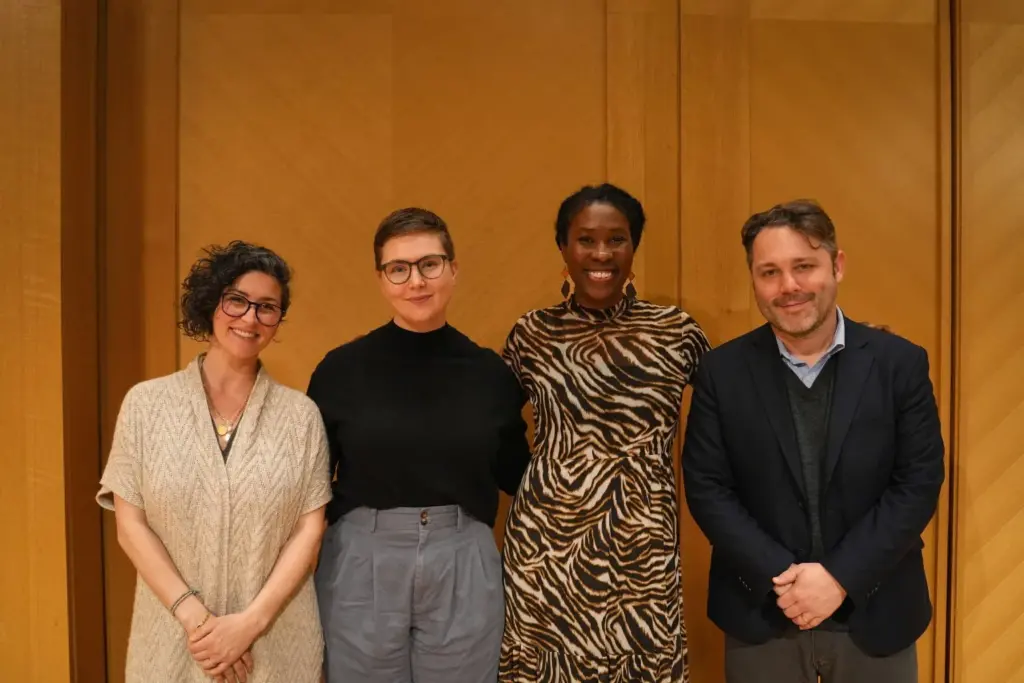
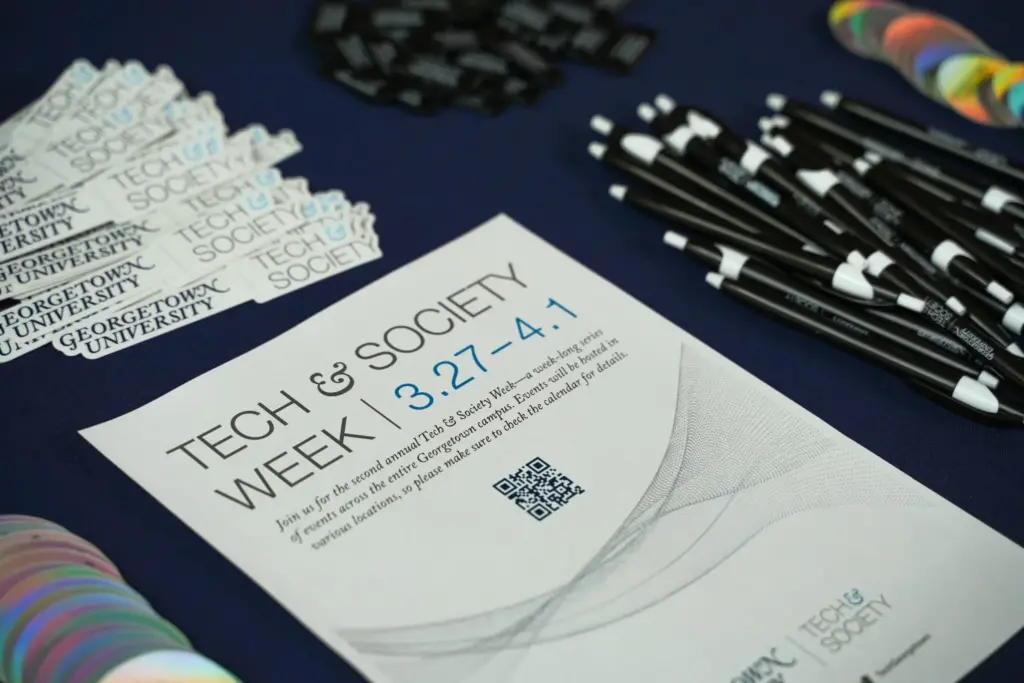
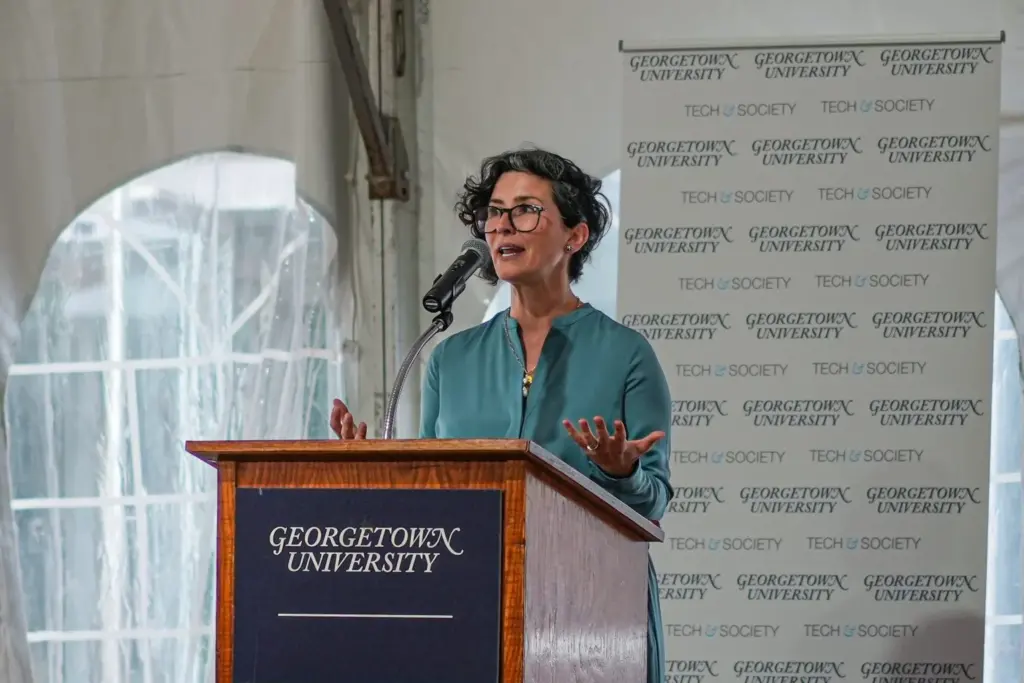
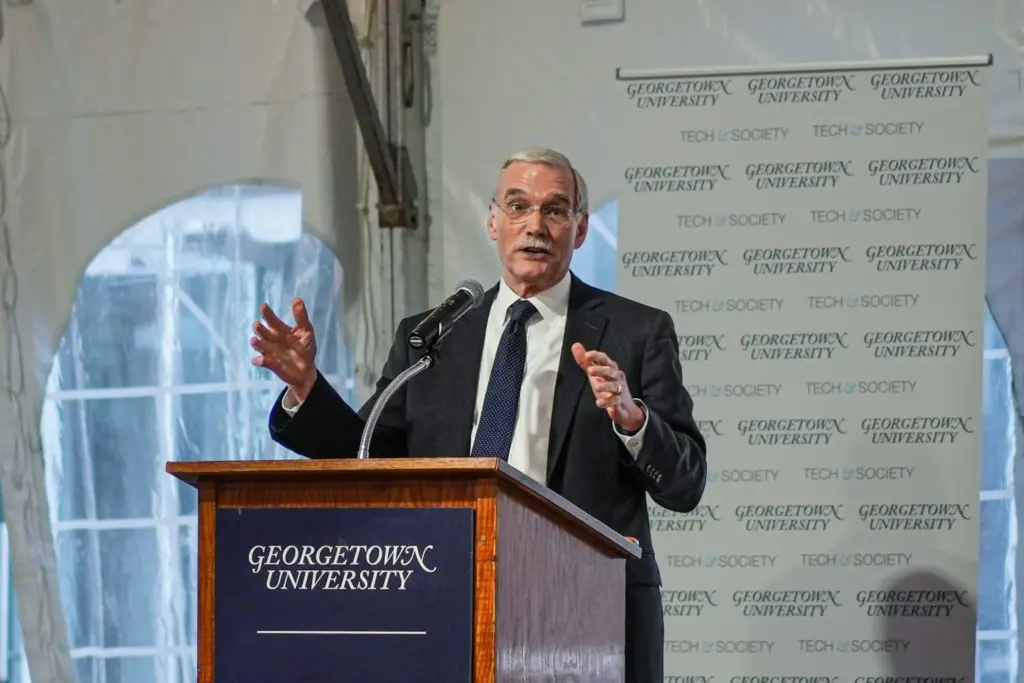
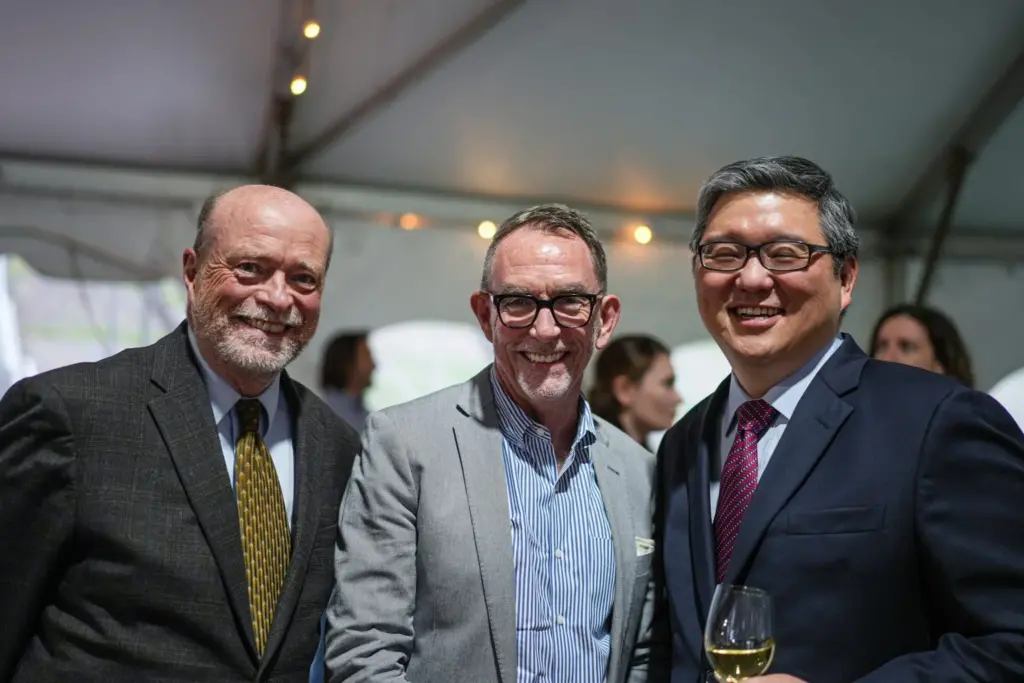
Working with Georgetown’s Tech & Society Initiative on its Hilltop, Georgetown Law and Capitol campuses, the two organizations will draw on the strength of their academic centers and networks — meeting an urgent need, says Knight President Alberto Ibargüen.
“Knight Foundation and Georgetown share a commitment to building scientific and policy consensus through independent inquiry and fact-based debate,” said Ibargüen. “In that sense, Georgetown is a natural partner in this work and is perfectly situated as a convener and translator for our growing public dialogue on technology and information in the context of our democracy.”
No Good Ideas Left on the Table
One of the main goals of the institute will be to bridge the gap between the growing research in the field and the policymakers, journalists and industry leaders who could benefit from it, says Paul Ohm, faculty director of the Tech & Society Initiative.
“Academics have made headway in a ton of problems and solutions on information and technology, but because academics largely talk to academics — and not to policymakers — great ideas are left on the table,” he said. “We’re providing a service to the field, teaching academics how to be more policy-relevant, connecting them directly to policymakers and also generating policy-ready versions of their work.”
Many centers in Georgetown’s Tech & Society Initiative already translate research in this way, including the Beeck Center for Social Impact and Innovation, the Center for Security and Emerging Technology and Georgetown Law’s Institute for Technology Law & Policy, among others. KGI will accelerate this work, focusing systematically on research translation across the field of information and technology, Ohm says.
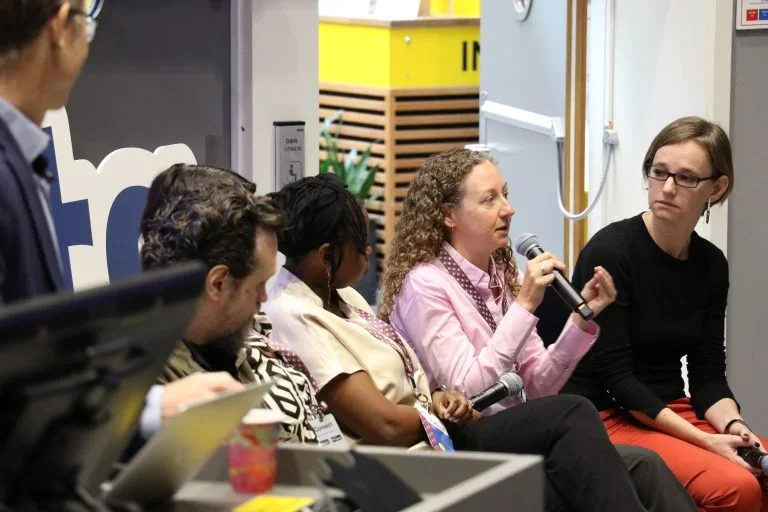
The institute will host nonpartisan policy workshops to train researchers across disciplines to engage with policymakers and legislators on the Hill and in federal agencies, and help digest their research into accessible insights, practices and design for this audience. But KGI’s leaders don’t just want to inform policy. They also want to promote better uptake of independent research across the tech industry and civil society. Inform the way code is built. How data is collected about users and how content is fed. How misinformation and disinformation affects marginalized voices. How industry leaders think about ethics and tech addiction and privacy and surveillance and algorithmic transparency and data-driven bias.
“We want to help people at every stage of the process,” says Leticia Bode, the Provost Distinguished Associate Professor who’s researched disinformation since 2014. “Helping the people who design the technology, who use the technology, who make policies about the technology, who run nonprofits that deal with the downstream effects of the technologies.
“We want people who have skin in the game to have the best information they can possibly have to make the decisions that they need to make.”
Defining a Messy, Emerging Field
In addition to translating research, KGI will connect leading, policy-engaged scholars from the KRN, Georgetown and across social science, data science, computer science, humanities, journalism and the law, and build relationships with stakeholders in the policy world. Institute leaders also plan to host an annual conference and smaller convenings throughout the year to foster dialogue and collaboration.
In addition to collaboration, KGI leaders see an opportunity to define and shape an emerging, undefined field — which includes, for example, election security, state and commercial surveillance, data-driven bias and inequality, and the role of private technology firms in society — and usher in an interdisciplinary approach to inform technology and media policy in the public interest.
“We are a little dissatisfied with how the field doesn’t have enough coherence and sharply drawn boundaries,” says Ohm. “Tech policy is our centerpiece, and this institute is a recognition that it’s a varied, big, expansive, messy problem, and we’re trying to tackle as much of it as we can and define the field more crisply than it has before.”
Training the Next Generation
One of the other central aims of the institute will be to train undergraduate and graduate students in the field of tech policy, preparing them to examine issues through an ethical, multidisciplinary framework. The institute will include pre-professional, mentorship and research opportunities, which may translate into curricular and course development. In 2022, Georgetown created a Tech, Ethics & Society minor to help undergraduates investigate the social issues tied to technology.
“This is as much about the current state of the field as it is about shaping the future,” Colbert says of the institute. “Part of our advantage is that as an educational institute, we can train future computer scientists, future engineers, future policymakers to think about the implications of what they’re doing and to ask the right questions.”
For Ohm, who is also a law professor in Georgetown Law, students will be the “lifeblood of the institute.
“We’ll be training the next generation on this interdisciplinary, common good and ethics-focused way of thinking about tech policy,” he said. “They’ll be some of the biggest beneficiaries of the institute and part of our lasting impact.”
This article was originally published by Georgetown University. Please follow the link to read the full story.
